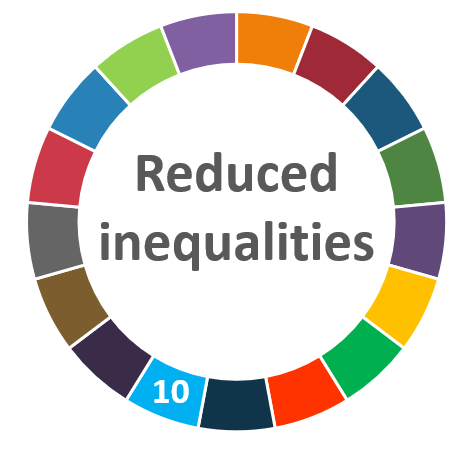
ΑΙhub.org
FLeet: putting machine learning in your pocket

By Tanya Petersen
EPFL/INRIA research shows that it is possible for our mobile devices to conduct machine learning as part of a distributed network, without giving big global tech companies access to our data.
Every time we read news online or search for somewhere to eat out, big tech collects huge amounts of our behavioral data. Google and Facebook, for example, say they do this to improve service and make our online experiences more personalized.
Their artificial intelligence (AI) filters news for articles they think you will be more interested in, offers videos similar to ones you have watched before, or helps you to find a restaurant based on ones you have previously liked. On the flipside, this data is also used to target advertising towards you, and can be shared with third parties, a key reason that digital privacy issues are so prominent.
Now, new research from the Distributed Computing Laboratory and Scalable Computing Systems Laboratory, part of EPFL’s School of Computer and Communication Science (IC) and the French National Institute for Research in Digital Science and Technology (INRIA) has shown that it is possible for machine learning to be undertaken on our mobile devices in real time, without compromising their functionality, and without having to share our data.
Conducted in the context of the EPFL/INRIA joint laboratory, the work introduces FLeet, a revolution in what is known as Federated Learning – a global model trained with updates computed on mobile devices while keeping the data of users local. Federated Learning is very appealing for its privacy benefits but because it is designed to have no energy or performance impact on mobile devices it’s not suitable for applications that require frequent updates, such as news recommendations.
FLeet combines the privacy of standard Federated Learning with the precision of online learning thanks to two core components: I-Prof, a new lightweight profiler that predicts and controls the impact of learning tasks on mobile devices, and AdaSGD, a new adaptive learning algorithm that is resilient to delayed updates.
As one of the paper’s authors, EPFL Professor Rachid Guerraoui explains, it turns out that today our smartphones have both the data and battery power to enable distributed machine learning to take place.
“With FLeet it is possible, while you are using your mobile phone, to use some of its spare power towards machine learning tasks without having to worry that your call or internet search will be interrupted. One of the reasons this is important, and we don’t want the machine learning to only be happening when you are asleep and your phone is on charge, is because sometimes we want, and need, real time information.”
Professor Anne-Marie Kermarrec was also an author on the paper, “What we have shown is that if we put all our phones together they start constituting big computing power to match the likes of Google and that gives people alternatives to relying on centralized, powerful computer farms. This is truly collaborative learning where local models are aggregated and contribute to the global model but you don’t share raw data and that protects your privacy, a huge motivation behind developing this kind of architecture.”
For now, FLeet is a prototype that shows what is possible. Guerraoui and Kermarrec say the next step is to continue work on developing a usable end product as well as research into other aspects of FLeet’s design, including how to make the system secure against possible attacks.
“There is a huge trend nowadays to try to bring machine learning activities back to the user because, after all, the data comes from us and we should be able to decide what happens on our own devices and with our own data. Models like FLeet will give people a choice by providing an alternative to the big tech players if they want it,” concluded Kermarrec.
FLeet: Online Federated Learning via Staleness Awareness and Performance Prediction, authored by Georgios Damaskinos (Facebook) Rachid Guerraoui, Anne-Marie Kermarrec (EPFL), Rhicheek Patra (Oracle Labs), Francois Taiani (INRIA/University of Rennes) and Vlad Nitu (CNRS) recently won best conference paper at the 2020 ACM/IFIP Middleware Conference, a major forum for the discussion of innovations and recent scientific advances of middleware systems with a focus on the design, implementation, deployment, and evaluation of distributed systems, platforms and architectures for computing, storage, and communication.

tags: Focus on reduced inequalities, Focus on UN SDGs









